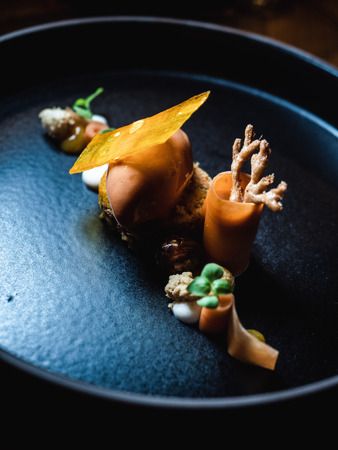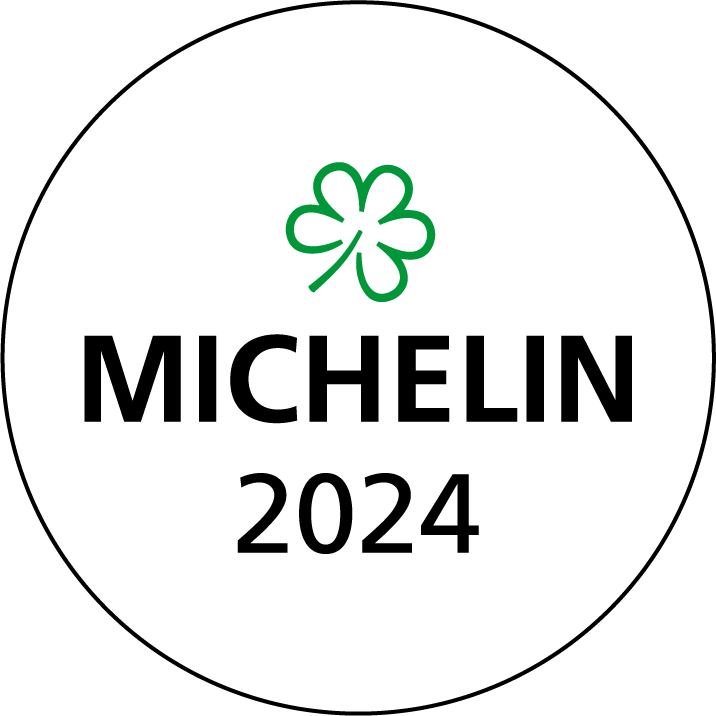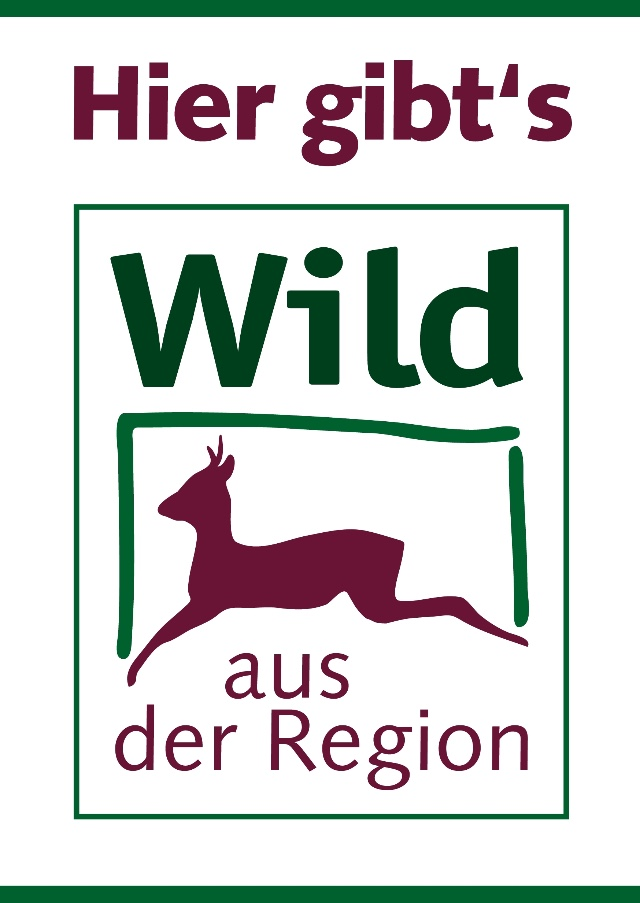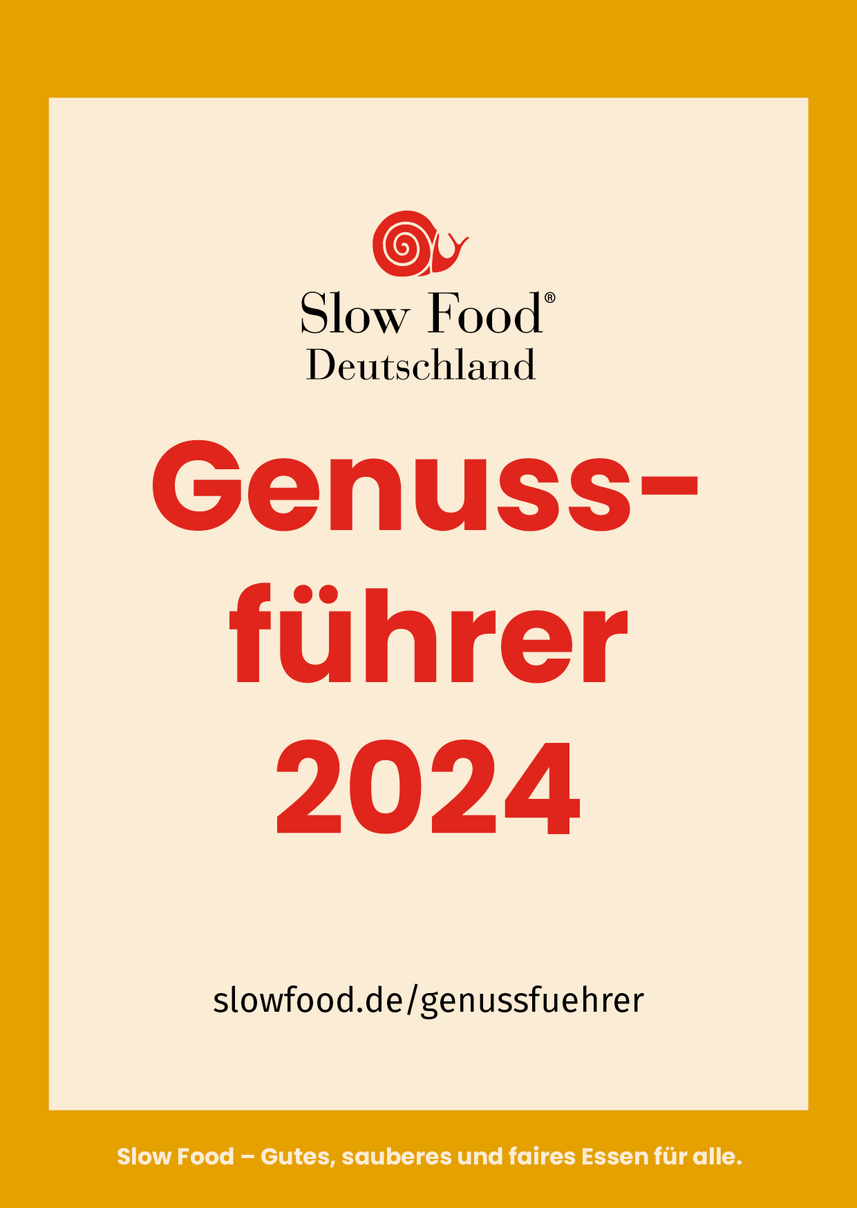
About Us
The history of the Traube
The Traube is characterized by a long and diverse history. We learn from many guests their own stories about the Traube. We hear about fond childhood memories of buying bread rolls at the bakery that was once housed here. About the shocking moments when the restaurant burned in 1983. About “the” Maria, who made the restaurant “her” Traube. From fellow students who scattered all over the world after studying and who found each other again after 30 years in the Traube. The restaurant is home to the oldest concession in the former town of Rohrbach. The walls once housed a stagecoach station, a butcher shop and a bakery. And in the 1950s, the Rohrbacher cinema, the “Luxor Lichtspiele”, was actually located here for seven years. It had 244 seats and offered 7-10 performances over 5-7 days. In 1981, the Clauer family from the Rohrbacher winery of the same name gave the Traube its current purpose. Over the years, the restaurant has become a national institution and is known far beyond Heidelberg. With the growing interest in their own wines and the expansion of the winery, the Clauer family wanted to dedicate more of their work to winegrowing again and therefore leased the restaurant from 2007. In 2015 they separated from the tenant and looked for a successor, which was found in Ole Hake and his partner Lisa Ziegler. The building was placed in the hands of the Hake family and carefully renovated. As a fresh family business, we initially developed an overall concept for the renovation in order to improve the work processes in daily restaurant operations and the feel-good atmosphere for the guests. The main idea was to bring more brightness and lightness into the very rustic and dark rooms, which were very gloomy due to the rough plaster on the walls that had been blackened by cigarette smoke and the deep brown ceiling beams. Special elements of the “old” Traube were highlighted by reducing the surrounding area, such as the sandstone wall, the hand-carved oak beams and the vestibule door, which was also hand-carved. Since then, the new eye-catcher of the restaurant has been the central steel staircase with oak steps, which now connects the two guest rooms and creates a completely new, friendly and open atmosphere in both rooms. Many changes are obvious at first glance, but more profound work has also been carried out - largely by hand - and, above all, renovations have been carried out “behind the scenes”. The cooling and storage rooms as well as the entire kitchen and sink area were expanded, modernized and re-tiled. Every “home builder” knows the challenges of renovation. With the Traube, the idiosyncratic old building charm and its special features were added. Many hours of nerves, dirt, sweat, motivation, good mood, frustration, love, ideas and thrown-out plans are in the individual “four” walls that house our restaurant. And on every corner there are stories that we and our family and friends have written to fill the house with our lives and those of our guests. In early autumn 2016 the time had come – the “new” Traube opened just in time for the Kerwe weekend. With many old but also new faces. Since then, a lot has happened. After more than six years and working under pandemic conditions, we know one thing above all: everything is changing, standing still is dangerous. We have learned a lot, constantly developed and look forward to every new experience.
The Traube earlier
Our concept
For us, regionality, seasonality and sustainability are not just trendy descriptions of our kitchen style. Since we opened in 2016, we have attached great importance to using regional products. Since 2021 we have been making even fewer compromises and taking a unique path! Since then, we have been offering not only mainly, but exclusively hunted meat all year round - and at a high level! You will no longer find beef, goose and chicken on our menu. And what's more: with the “Wild from the region” seal from the German Hunting Association, we commit to sourcing our game meat from local areas within a 100 kilometer radius. Our network now consists of more than 15 hunters, all of whom we know personally and can therefore understand exactly where our meat comes from and how the animal died. Why game meat? Wild meat is climate-neutral, the animals live freely, self-determined and species-appropriate, only eat what they find in nature and they do not need to be fed (with medication). There are no unspeakable working conditions like those in the meat industry, which became known in the Corona pandemic at the latest, and there are no long transport routes. By the way: owner Ole Hake has had his hunting license since 2021, which played a role in drawing the red line in meat processing. We have now further developed our expertise in game processing and occasionally also offer pigeon, badger or pheasant specialties. For us, processing the animals holistically (nose-to-tail) is not just a phrase, but a living kitchen style. We receive the animals whole from our hunters and when we cut them up, we think carefully about what type of preparation the individual parts are suitable for and what we can do with them, because this varies greatly depending on the animal (species). At the same time, we would like to dispel still-widespread prejudices, such as that game meat always smells a bit “strong” and “musty” or is only suitable for the dark season with red cabbage and a heavy sauce. Our alternative to meat Of course, we know only too well that even the most sustainable meat doesn't suit everyone's dietary habits, which is why we also have a purely vegan menu with seven courses! We rely on the same high quality raw materials as we do with meat and fish. But we don’t just apply the “nose-to-tail” and sustainability approach to meat. For example, we only process freshwater fish from the Rhine and the Odenwald, mussels from the North Sea and avoid wines (and any other products) from overseas.
Other suppliers & products are:
Nussloch goat cheese farm Geifertshofen village cheese dairy, Bühlerzell Apple juice made from local fruit Forellenhof Lenz, Oberzent Zander, pike, catfish and perch from the Rhine between Karlsruhe and Mannheim from the Rhine fishermen Golden millet and quinoa from the Odenwald Chickpeas from Hohenlohe Vinegar specialties from Theo Berl, Kehl Oils from the Wasgau oil mill, Hauenstein Vegetables from the vegetable factory, Heidelberg Shrimp from “Neue Meere”, Gronau (Leine) Oysters, vongole, calamari and razor clams from the North Sea from AusterRegion self-picked flowers, herbs and fruit from our own garden Inge & the Honey Bear Gin by Eric Kletti, Mosbach RubyCube vinegar creation from Landau Goodvine’s non-alcoholic wines from Heidelberg Espresso from the private roastery Bonafede, Hockenheim Beverages Kern, Wiesenbach Asparagus from Schwetzingen, Pfisterer fruit farmOur awards




